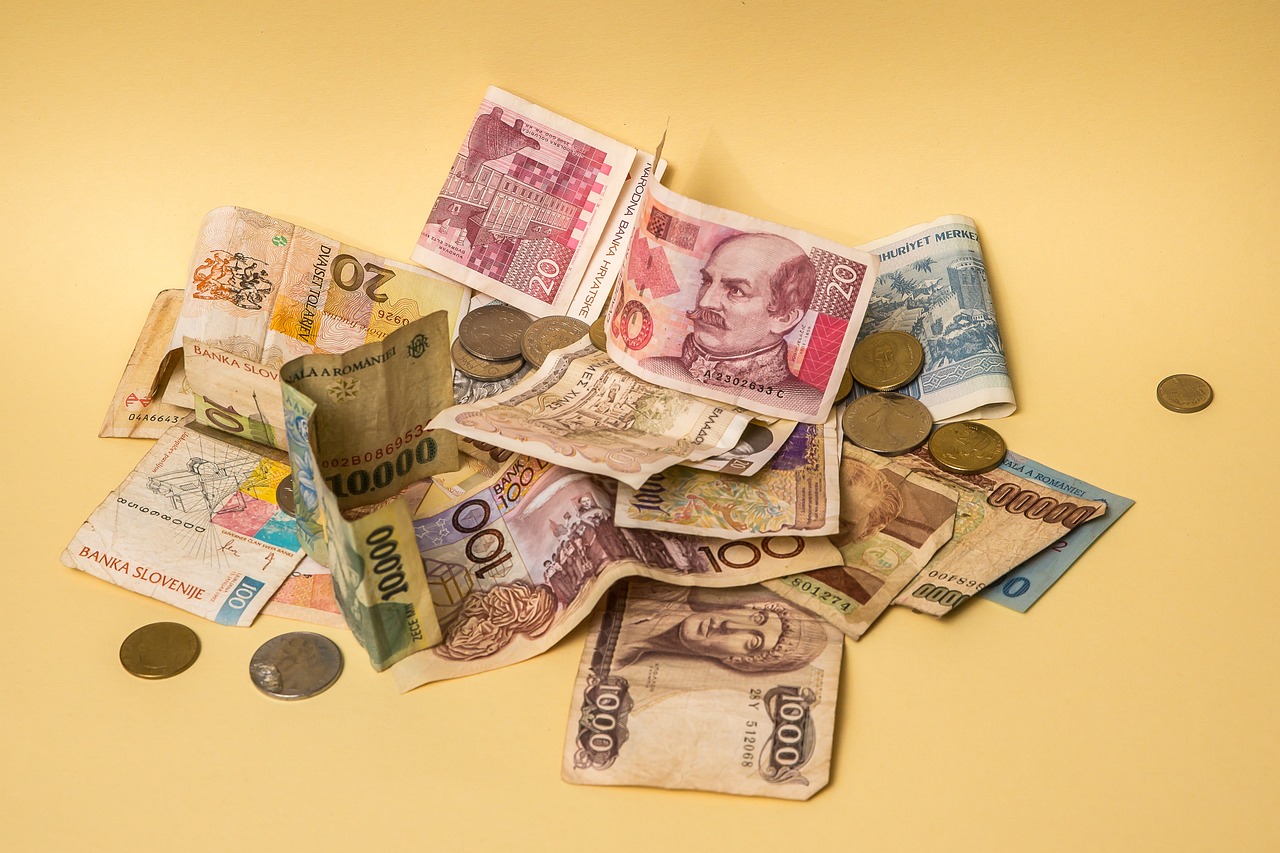Everything You Need to Know About Sending Money from the US to Japan: Tracking Transfers, Fees, Cryptocurrency, and More
GPT_Global - 2025-09-02 08:30:14.0 147
How do I track a money transfer from the US to Japan?
Sending money overseas is common, but many people wonder: how do I track a money transfer from the US to Japan? Tracking your transfer ensures peace of mind and helps you know exactly when the recipient can access the funds. Most reliable remittance services provide tracking tools online or through mobile apps, making the process simple and transparent.
When you complete your transfer, you’ll receive a unique reference number or transaction ID. This number allows you to monitor the status of your payment in real time. By entering it into the service provider’s website or app, you can see if the money is being processed, in transit, or already delivered to your recipient’s bank account in Japan.
Additionally, many providers send updates via email or SMS notifications. This added layer of communication ensures you stay informed at every step. For a smooth experience, always double-check your recipient’s banking details and choose a trusted remittance service that offers reliable customer support. With the right tools, tracking your transfer from the US to Japan becomes fast, easy, and stress-free.

Can I send money from the US to Japan using cryptocurrency?
Sending money from the US to Japan has become easier with the advent of cryptocurrency. Cryptocurrencies like Bitcoin, Ethereum, and stablecoins offer a fast and cost-effective alternative to traditional remittance methods. Using digital currencies, individuals can bypass banks and international transfer fees, providing a quicker transaction route.
To send money from the US to Japan using cryptocurrency, both the sender and the recipient must have a crypto wallet. After purchasing the desired cryptocurrency, the sender can transfer it to the recipient’s wallet address. The transaction process is typically completed within minutes, with low fees compared to conventional remittance services.
One key advantage of using cryptocurrency for remittances is its ability to operate 24/7, without depending on banking hours or holidays. This flexibility makes it ideal for urgent transfers. However, it is important to note that cryptocurrency value can be volatile, so both parties should be aware of price fluctuations.
Overall, cryptocurrency is an efficient and secure method for sending money internationally. If you're looking for a fast, low-cost option for remittance to Japan, cryptocurrency could be the ideal solution.
Is there a difference between sending money to a personal vs. business account in Japan?
When it comes to sending money to Japan, understanding the difference between transferring funds to a personal account versus a business account is important. For remittance businesses, knowing these distinctions can ensure smooth transactions and compliance with regulations.
Sending money to a personal account in Japan is straightforward, as personal accounts are typically used for individual transactions. The process is usually quick, with few restrictions, as long as the sender provides accurate details. However, it’s important to verify the recipient’s name and account number to avoid errors.
On the other hand, transferring funds to a business account may require additional information, such as the business registration number and tax identification details. Some remittance services may also charge higher fees for business transactions due to the extra verification steps involved. Businesses may also face stricter scrutiny from authorities, particularly regarding anti-money laundering regulations.
In summary, while sending money to a personal account is often simpler, sending funds to a business account in Japan may involve more formalities. Always check the specific remittance service's terms and conditions to ensure a smooth and compliant transfer process.
Do Japanese banks charge fees to receive money from the US?
When sending money internationally, one common question is: do Japanese banks charge fees to receive money from the US? The answer is usually yes. Most Japanese banks apply inbound transfer fees when receiving foreign remittances, and the exact cost depends on the bank and the amount sent. These fees can range from a few thousand yen to more, making it important for senders and recipients to compare options before transferring money.
In addition to receiving fees, Japanese banks may also apply currency conversion charges if the money is sent in U.S. dollars but needs to be converted into Japanese yen. Exchange rate margins often add an extra hidden cost, which can significantly reduce the final amount received by your beneficiary in Japan.
To minimize costs, many individuals use specialized remittance services instead of traditional banks. Online money transfer providers typically offer lower fees and more competitive exchange rates compared to Japanese banks. By choosing the right service, senders can ensure that their loved ones in Japan receive more of the money intended for them. Comparing fees and exchange rates before sending is the key to making cost-effective international transfers.
What are the safest methods to send money from the US to Japan?
When sending money from the US to Japan, safety is a priority. To ensure your funds reach their destination securely, choosing the right method is key. Several trusted services make international remittance hassle-free, secure, and cost-efficient.
One of the safest options is using international bank transfers. Both banks in the US and Japan offer secure channels for sending money, ensuring that your funds are protected. However, this method can come with higher fees and longer processing times.
For faster and more affordable transfers, digital platforms like PayPal and Wise (formerly TransferWise) are ideal. These services are well-known for their ease of use, low fees, and real-time tracking, making them a popular choice for international remittances.
Another safe option is MoneyGram or Western Union. These services allow you to send money online or from physical locations, offering a reliable way to transfer funds to Japan. They are especially beneficial for recipients who don’t have a bank account.
Ultimately, the safest methods combine secure technology with reputable institutions. Consider factors like fees, speed, and customer support to find the best solution for your remittance needs.
How can I compare transfer fees between providers for sending money to Japan?
Here’s a concise SEO article tailored to your request: ---When sending money to Japan, understanding how to compare transfer fees between providers can help you save significantly. Different remittance services have varying fee structures, and knowing what to look for ensures you get the best value for your transfer.
First, check the flat transfer fee and the percentage-based charges. Some providers charge a fixed amount per transaction, while others take a percentage of the amount sent. If you plan to send larger sums, percentage fees can add up quickly, so comparing both models is essential.
Next, review the exchange rate margin. Even if a provider offers low upfront fees, they might adjust the exchange rate to include hidden costs. Comparing the mid-market rate with the offered rate gives a clearer picture of the real expense.
Finally, consider additional costs such as receiving bank fees or intermediary charges. Reading customer reviews and using online comparison tools can help you identify providers that are transparent with their pricing. By evaluating transfer fees carefully, you can ensure your money reaches Japan efficiently and at the lowest cost.
Can I send money from a US credit card to a Japanese bank account?
Sending money from a US credit card to a Japanese bank account is possible, but it often comes with some conditions and fees. Many remittance services allow users to transfer funds internationally using a credit card, though the availability of this service can vary depending on the provider. Popular platforms like PayPal, Western Union, and TransferWise (now Wise) support such transactions.
When sending money from a US credit card to a Japanese bank account, it's important to be aware of potential fees. Credit card transactions often incur higher fees than other methods like bank transfers. These fees can include service charges, foreign exchange costs, and credit card processing fees. Additionally, the transfer may be subject to interest rates, especially if the credit card balance is not paid off quickly.
Before using a credit card for an international remittance, consider comparing different services to ensure you get the best deal in terms of both fees and exchange rates. Also, be mindful of the processing times, as credit card payments can sometimes take longer to complete compared to other methods like bank transfers or mobile wallets.
What should I do if my transfer from the US to Japan is delayed?
```htmlWhen your transfer from the US to Japan is delayed, it can cause stress, but understanding the process can help ease your concerns. Start by contacting your remittance service provider to confirm the delay's cause. Common issues include bank processing times, incorrect recipient details, or technical errors.
If your provider offers tracking services, make sure to use it to get real-time updates on the transfer status. This allows you to monitor the process and take timely actions if necessary.
Next, ensure all information you provided is accurate. Double-check recipient details like the bank account number, address, and phone number to prevent any discrepancies. If the delay is due to missing information, this step will help resolve the issue faster.
If the problem persists, inquire about the specific steps you can take or ask for alternative solutions such as initiating a new transfer. Additionally, keep your remittance provider updated with any changes or clarifications.
In some cases, financial regulations or high transaction volumes might be the cause of delays, so patience is key. However, by staying proactive and informed, you can ensure that your funds will arrive in Japan without major issues.
```
About Panda Remit
Panda Remit is committed to providing global users with more convenient, safe, reliable, and affordable online cross-border remittance services。
International remittance services from more than 30 countries/regions around the world are now available: including Japan, Hong Kong, Europe, the United States, Australia, and other markets, and are recognized and trusted by millions of users around the world.
Visit Panda Remit Official Website or Download PandaRemit App, to learn more about remittance info.


